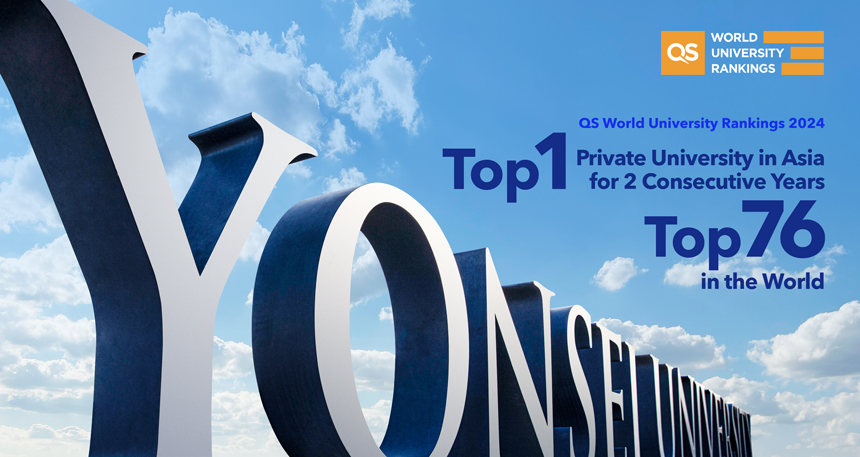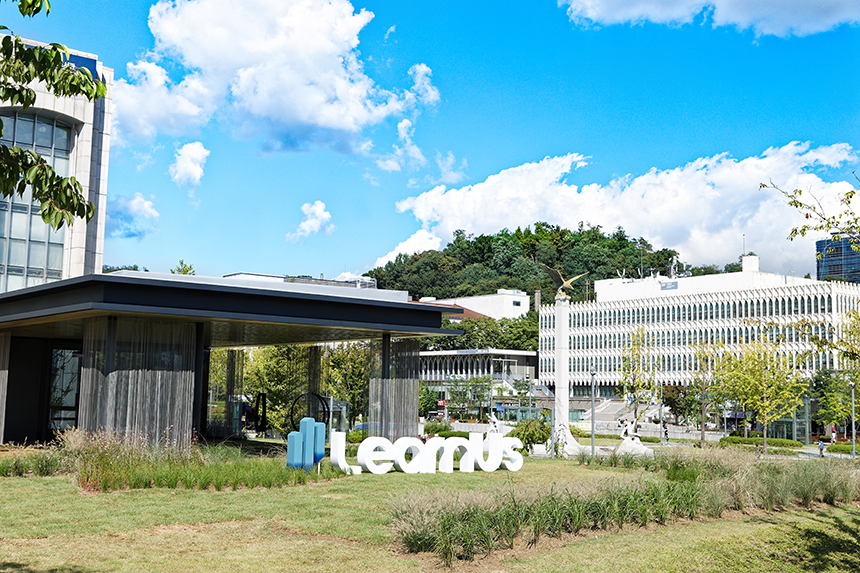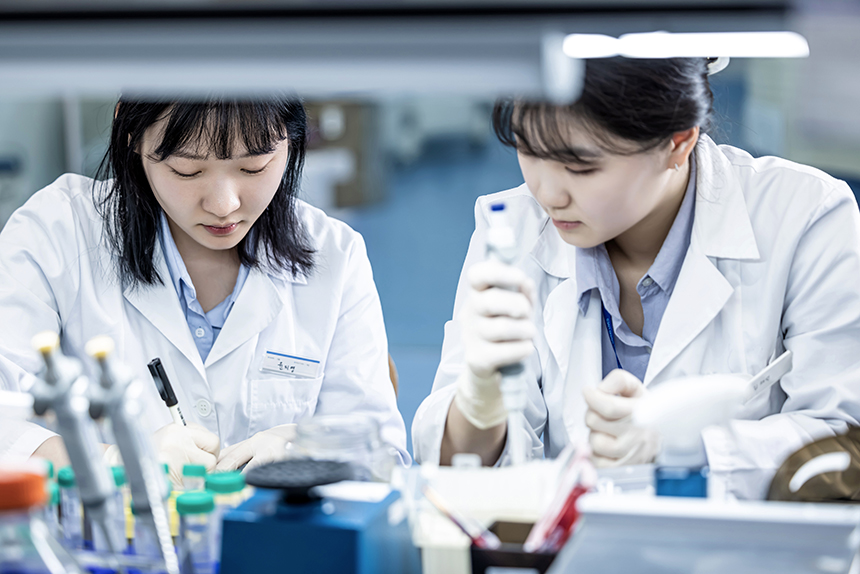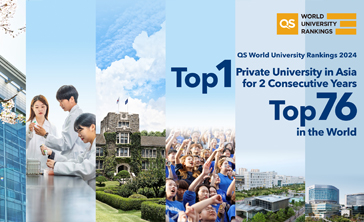- Yonsei University Ranks 1st among Asian Private Universities in the QS World University Rankings 2024 June 28, 2023
-
Ranked higher in citations per faculty and academic reputation, firmed the place of No. 1 private university in Asia

Yonsei University in Seoul, South Korea, ranked 76th in the world and 1st among the Asian private universities in the QS World University Rankings 2024, released on June 27 by Quacquarelli Symonds (QS), a global university evaluation agency in the United Kingdom.
This year, QS announced the ranking by adding ▲ international research network (IRN) and ▲ ESG indicators to the existing six indicators, including ▲ academic reputation, ▲ employer reputation, ▲ citations per faculty, ▲ faculty-to-student ratio, ▲ international faculty ratio, and ▲ international student ratio. 2,963 universities around the world participated in this year's evaluation, and 1,503 of them were ranked. The QS World University Rankings, which marks its 20th anniversary this year, is known as the most frequently referenced university evaluation by education consumers and stakeholders worldwide, including students, educational institutions, and governments.Yonsei University remained in the top 80 in the overall ranking, rising 63 ranks in the citations per faculty and four places in the academic reputation compared to the previous year. Despite the application of IRN and ESG indicators that are disadvantageous to Asian universities, it is even more meaningful as Yonsei has topped Asian private universities for the second consecutive year.

Yonsei University opened the online education platform "LearnUs" in September 2021. This is the first online education platform opened to the general public by a Korean higher education institution to lead the media revolution and knowledge sharing of higher education. LearnUs, which is attempting to transform a new educational paradigm in the era of transboundary and hyperconnection, currently has more than 30,000 individual members and 5,000 high-quality educational videos.
The "Online Joint Lecture Network," which includes 25 universities led by Yonsei, is also based on LearnUs. This year, it plans to increase the number of participating universities to about 50 and expand joint lectures to overseas universities to grow LearnUs into an online lecture platform with global competitiveness.
Yonsei University has also achieved remarkable growth in research, which is the basis of its university mission. It earned winning 500 billion won in annual research funds in 2022, for the first time since its foundation.
Yonsei has attracted the "Yonsei-IBM Quantum Computing Center" on the International Campus in Songdo, Incheon, with the aim of operating since 2024. This will make South Korea the fifth country in the world to have quantum computers after the United States, Germany, Japan, and Canada. Quantum computers, called game changers that can surpass existing supercomputers, are next-generation technologies that can bring a breakthrough in various industries and research fields such as finance, cryptography, new drug development, artificial intelligence, and biotechnology.
The Yonsei-IBM Quantum Computing Center is expected to be able to create synergy with Yonsei University's top research personnel and medical network. Yonsei will establish itself as a leader in the quantum ecosystem through advanced research using quantum computers and work with other institutions to accelerate the development of quantum technology and its applications.In addition, Yonsei University is training Korean and international bio-specialists through the K-NIBRT project and the vaccine production education of the Asia-Pacific region on the International Campus, and it will also strive to foster bio-startups through the "K-Bio Lab Hub" project worth 280 billion won. Yonsei University, which held a ground-breaking ceremony for Songdo Severance Hospital in December last year, is expected to further boost global research competitiveness by building a bio cluster encompassing "industry-university-research-hospital" collaboration using advanced infrastructure built on the International Campus.
show mobile menu
mobile menu




